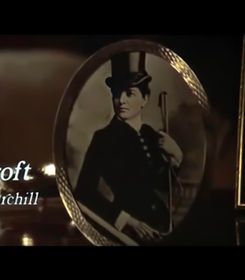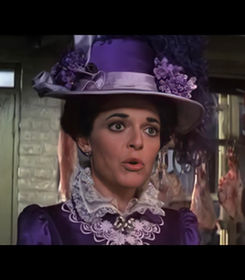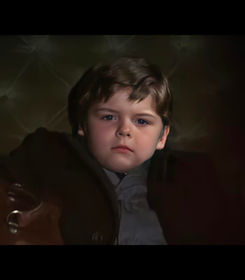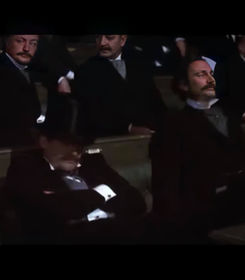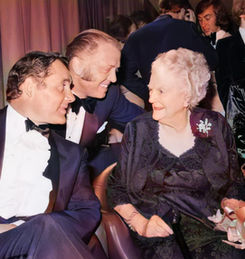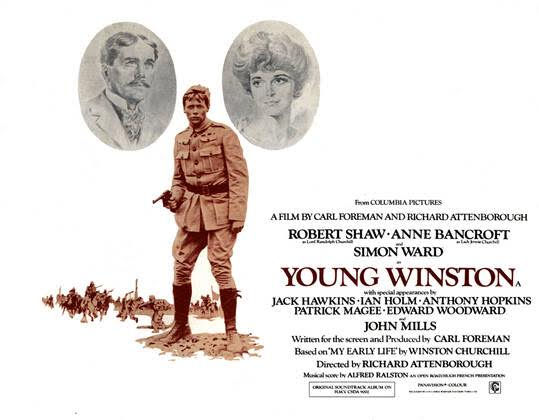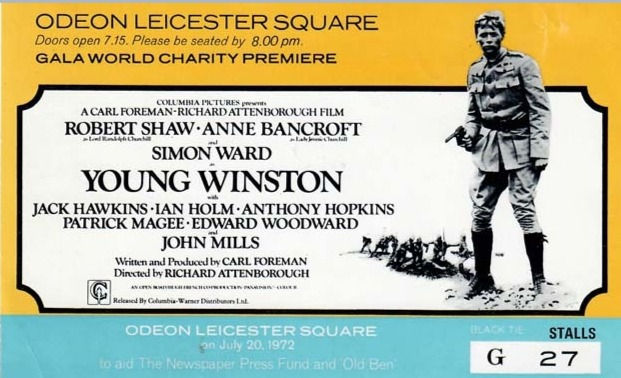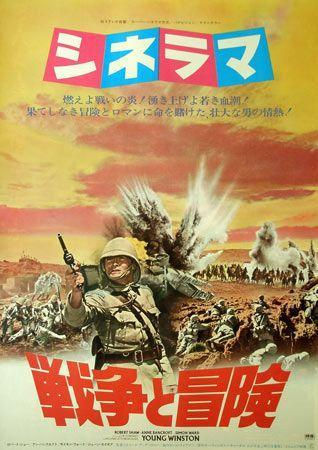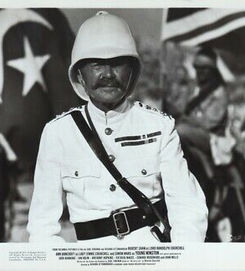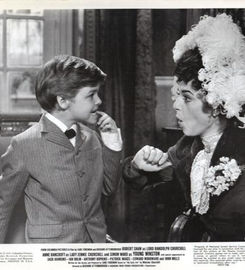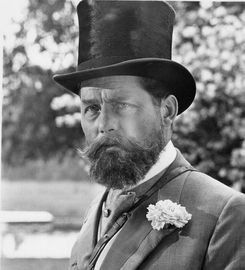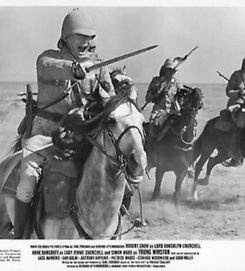
.com

Estd. 2020
Approved by the Shaw Family






"What's to become of you boy?"

"I just can't believe Robert is gone. It's so hard to talk about this wonderful man and actor now. He was a special friend."


trailer
Robert Shaw as Lord Randolph Churchill (1849-1895)


This historical drama is an account of the early life of the future British Prime Minister Sir Winston Churchill, including his childhood, his time as a war correspondent in South Africa during the Second Boer War, and culminating in his first election to Parliament.
Directed by Richard Attenborough
Screenplay by Carl Foreman based upon "My Early Life: A Roving Commission" by Sir Winston Churchill
Produced by Carl Foreman, Richard Attenborough, Harold Buck and Hugh French
Music by Alfred Ralston
Cinematography by Gerry Turpin
Edited by Kevin Connor
Also starring Simon Ward, Anne Bancroft, Jack Hawkins, Anthony Hopkins, Ian Holm, Patrick Magee, Robert Hardy and John Mills
Released by Columbia Pictures
Release Date: July 21st 1972
Running Time: 157 minutes
Location(s): Shepperton Studios, Blenheim Palace, Chartwell, Wales and Morocco
Filming commenced: May 17th 1971
Nominated for 3 Academy Awards. Robert was nominated for a BAFTA and Golden Globe for best actor. The film won best film at the Golden Globes.









gallery





Modern Theatrical Trailer
Young Winston gets the modern trailer treatment in this 2021 reboot.
Deleted Scene
A rare deleted dream sequence that was cut from the end of the film featuring Robert returning to speak to an older Winston in his dream.
Official Movie Soundtrack
Enjoy the stirring movie soundtrack composed by Alfred Ralston and Edward Elgar.
Richard Attenborough on The Dick Cavett Show
Richard Attenborough on The Dick Cavett Show
Richard Attenborough on The Dick Cavett Show
Young Winston director Richard Attenborough dicusses Winston Churchill with Dick Cavett. Other guests include Sir John Gielgud and Sir Ralph Richardson.
Young Winston director Richard Attenborough discusses making the film with Dick Cavett.
Young Winston director Richard Attenborough tells Dick Cavett a funny story about Lady Churchill.
Robert on Randolph
Robert discusses the Randolph Churchill's illness with Dick Cavett.
Fighting on Film Podcast
Enjoy this podcast looking at the military aspects of the movie.
Randolph Churchill
A compilation of some of Robert's best scenes from the film.




![now showing GIF_thumb[1].gif](https://static.wixstatic.com/media/51f4b8_c475c3f62240416ea489b9651df68e26~mv2.gif/v1/fill/w_452,h_105,al_c,usm_0.66_1.00_0.01,pstr/now%20showing%20GIF_thumb%5B1%5D_gif.gif)


Press Play



DIRECTOR
Richard Attenborough
(1923 - 2014)
churchill's war room

"Shaw gives an outstanding performance of dangerous panache which lights up the screen."

"Shaw is simply magnificent."





Anne
Bancroft
(1931 - 2005)
Simon
Ward
(1941 - 2012)
Anthony
Hopkins
(1937 - )

Ian
Holm
(1931 - 2020)




Robert
Hardy
(1925 - 2017)
John
Mills
(1908 - 2005)
Jack
Hawkins
(1910 - 1973)
Patrick
Magee
(1922 - 1982)


An entertaining if uneven account of the early life of Winston Churchill. It's lavishly mounted by Attenborough and boasts a fantastic cast, a solid script and a great soundtrack. The battle scenes are epic in scale and beautifully shot but the as far as Shaw is concerned, it's shame he's only in the first third of the film.
His performance as Randolph Churchill is magnificent. Brooding, restrained and taciturn, his descent into madness is absolutely heart breaking and beautifully played. Shaw's performance is so powerful, his presence hangs over the rest of the film.
Bancroft is also outstanding and Simon Ward plays Young Winston with great verve. It does plod on occasions and it's the uneven pace and questionable accuracy that stop a good film becoming great.

Lobby Card Gallery

Churchill had his pundits and naysayers in his own time. But he soldiered on according to his own likes; a true modern-age Trojan if ever one existed. Whether servicing England abroad, rifle and bayonet firmly in hand, or on the floor of the House of Commons and supreme, Churchill was never anything less than the supreme overseer of the nation’s most turbulent times.
Just as Franklin Roosevelt had created an aura around his public persona, as the nation’s father figure, with his country-wide radio hookups and ‘fireside chats’, Churchill’s addresses to an England under siege from Hitler’s blitz, proved the cause célèbre to rally England to its feet and fight on to victory.
Director, Richard Attenborough’s Young Winston (1972) is not particularly interested in that galvanized cinematic image of Churchill, endlessly revived as the pugnacious PM, body in decline, with the bulbous face of a bulldog, but rather, the dashing young man, rarely if ever observed on celluloid who, even at the cusp of his manhood, stood tall and lean in an era steeped in decorum and gallantry; qualities thought to have perished with the Second Boer War.
Carl Foreman’s screenplay is based on Churchill’s own My Early Life: A Roving Commission – the 13th autobiographical installment in a 26-volume account of his life and times. Attenborough, in the director’s chair for the very first time, has been entrusted with the task of informing his audience of the epic stature of a man many only ‘thought’ they knew.
On occasion, Attenborough has a rough go of sticking with his subject, played with uncanny insight by the magnificent stage actor, Simon Ward. But Attenborough, who has also been given a plum cast, to include the likes of Jack Hawkins, Jane Seymour, Anthony Hopkins, and Ian Holm, intermittently seems far more interested in exploring the family dynamic exemplified by Winston’s mum and dad: Lord ‘Randolph’ and Lady ‘Jennie’ Churchill, carried off with monumental stature by Robert Shaw and Anne Bancroft respectively.
The first half of Young Winston is a travelogue through Winston’s discontented school years leading up to the death of his father, and, in spots, the picture suffers from a lag of impetus to propel the plot onward.
We are introduced to a pair of headmasters; Robert Hardy’s stern educator from Winston’s prep school, and Hawkins’ James Welldon of Harrow; also, the wonderful Pat Heywood as Churchill’s nanny and early confidante, Elizabeth Ann Everest.
All of the aforementioned have a personal investment in the shaping of the man who, for the bulk of this movie, emerges fully-formed in Ward’s accomplished stature as a sort of staunch, self-anointed, and even more self-possessed individual of qualities – only some, immediately admirable - but who quickly begins to carve, then govern, and finally, guide a destiny according to his own likes, and, much to the chronic chagrin and consternation of Lord Churchill.
Despite its hefty 157-minutes (later, to be unceremoniously pared down to 146, then 124-minutes), Young Winston cannot help but steadily devolve into a faux epic.
Part of the responsibility for this affliction is Attenborough’s inexperience behind the camera. Young Winston is a series of moving tableau which cumulatively attempt, but only intermittently succeed, at unearthing Churchill’s driving core of ambition.
If anything, Attenborough’s direction here lacks the same level of passion Winston Churchill possessed in life, richly unfurled with handsome production values on the expansive Panavision screen.
The rest of the responsibility here falls on Carl Foreman, whose screenplay becomes ensnared in the trap of providing loose coverage of the man in his hours of glory and despair. Let’s face it: an hour in Sir Winston’s shoes is more riveting than most people’s lifetimes.
So, what we have here is the Cole’s Notes’ edition of Churchill’s exploits in India and the Sudan; his partaking of the cavalry charge at Omdurman, and, his experiences as a war correspondent during the Second Boer War; a conflict in which he endured enemy capture, escaped by the skin of his teeth, and, went on to win his first election to British Parliament at the age of 26!
Young Winston spans the early decades. Anchoring the date, September 16th, 1897, but beginning in the middle, with Churchill, a junior officer stationed in India and most determined to distinguish himself as a soldier and statesman, almost immediately, we regress through Ward’s eloquent voice-over narration, into Winston’s childhood: Churchill, as a boy, briefly played by Russell Lewis – age 7, and, Michael Audreson – age 13.
Sent to boarding school, Churchill endures excessive whippings from the Headmaster for his perceived insubordination. He is withdrawn from this formal ‘education’ by his mother – far more compassionate to his plight than his father, and ensconced, under Welldon’s tutelage, at Harrow.
Defiant to a fault, Churchill refuses to partake of his entrance examination, committing nothing to paper. Nevertheless, Welldon is impressed with the lad, recognizing his ‘potential’. And indeed, Churchill’s intelligence blossoms at Harrow. His recital from memory of a lengthy 1000-line poem is attended by his ever-devoted nanny; yet, all but ignored by his parents, whose acceptance Winston is, at first, somewhat anxious to obtain.
At this juncture, Lord Churchill contracts a venereal disease. Jennie is informed by doctors Roose (Clive Morton) and Buzzard (Robert Flemyn) her husband has perhaps 5-6 years yet to live.
The eternal struggle of the generation gap continues as Winston, passionate and slightly pompous, infuriates Randolph, who orders him return to his bedroom.
Softening somewhat shortly thereafter, especially under Jennie’s guidance, Randolph elects to offer something of a veiled apology for his sternness and Winston, deeply admiring his father, decides then and there that his future will be in the military. Alas, Winston is distracted, or perhaps, so far ahead of his colleagues, he cannot fathom the waste of time it takes to cut through all the bureaucracy.
As such, it takes him three attempts to finally gain acceptance into Sandhurst. Despite his eventual entrance into this prestigious Royal Military Academy, Randolph is unimpressed with his son, as Winston has barely managed to scrape by – ranking seventh, from the bottom of his class. Randolph chides his son to do better. More is expected of him. He must therefore demand far more from himself.
By now, the undisclosed illness afflicting Lord Churchill (he is believed to have suffered from syphilis – although he died of pneumonia) has taken hold. Quietly succumbing to the disease, Winston is heartbroken that his own dreams of entering British Parliament while his father reigned as Chancellor of the Exchequer, will remain unfulfilled.
Churchill’s graduation from Sandhurst is therefore bittersweet. But now, he invests everything he has as a Second Lieutenant, shipped off to India and the Sudan. Aside: this is presumably where the picture’s great satisfaction ought to have arisen, with a flourish of valor on full display, via the pageantry of military might.
Alas, Attenborough directs the cavalry charges at the Battle of Omdurman with a sort of static aplomb – the action, so woefully regimented, it emerges as a thoroughly weak-kneed reenactment. Instead of a bawdy display of guts and glory, we are treated to melodrama, dovetailing into Winston’s journey to South Africa as a war correspondent. En route to his outpost via train, Winston and the other soldiers are ambushed by Boers, barreling into a stockpile of rocks on the tracks.
Courageously organizing the men to push one of the damaged cars onward, Churchill and several others are taken prisoner by the Boers. Determined to escape, Churchill eventually seeks aid from Mr. Howard (John Woodvine) who helps to smuggled him across the border. Concealed in a mine for three days, Winston eventually makes his way to another train, crossing into British-controlled territory and, thus, free to return to England.
Decorated as a war hero, Churchill easily wins the Oldham election. Our story concludes with another of Churchill’s orations; this one, a deft summary of his future trajectory and marriage to the affable, Clementine Hozier (Pippa Steel), seven years later. Newsreel footage makes Churchill’s triumphant appearance alongside the Royal Family at Buckingham Palace on VE Day, May 1945.
Nominated for 3 Academy Awards, and proving itself one the most highly-anticipated, and widely seen pictures in the U.K., Young Winston’s aegis, at least for screenwriter, Carl Foreman, began with a chance encounter with none other than the great man himself. Churchill had, in fact, been impressed with Foreman’s work on The Guns of Navarone (1961).
Rather magnanimously, Churchill suggested his book, ‘My Early Life’ as the template for another grand epic. Foreman was enthralled to be asked, and effectively announced to the world he would produce such a picture to star James Fox, who had broken through to popular appeal on both sides of the Atlantic, thanks to stellar work in The Servant (1963), Those Magnificent Men in their Flying Machines (1965), King Rat (1965), The Chase (1966), Thoroughly Modern Millie (1967), Isadora (1968), and Performance (1970).
Alas, Fox was not to partake of Young Winston, for reasons never entirely disclosed. And Foreman, desperate for an actor to promote in the lead, fell to a superb second choice - Simon Ward; the handsome and accomplished thespian, son of a car salesman from Beckenham, Kent, primarily known for his work on the English stage.
With virtually no screen experience, Ward’s performance in Young Winston nevertheless manages to typify all of the youthful defiance and self-effacing pride one could imagine coursing through Churchill’s veins.
Indeed, Ward, as Winston, is magnetic, and the picture’s success – particularly in the U.K., is due largely to his performance, and, effectively, ought to have launched one of those iconic and formidable movie careers, to be endlessly revived and discussed decades later. Alas, it was not to be.
Instead, Ward would remain ever-devoted to the stage – his appearances in films thereafter, distilled largely into forgettable parts - like 1973’s reboot of The Three Musketeers and its 1974 sequel. Addressing the rare query regarding his ‘failure’ to take full advantage of the flourish of success afforded him after Young Winston, Ward joked that he lacked the matinee profile of a leading man, while being far too young to play character parts – like ‘the butler’. “I knew I wasn’t going to hack it in Hollywood because I didn’t look right for American movies. I would have ended up playing depressed gay marquesses… My nose was not big enough — you need a big nose.”
More to the point, Ward had no stomach for stardom, and seemingly no ambition to seek out the limelight either. For a brief wrinkle in time it followed him, with honorable mention to 1974’s All Creatures Great and Small, 1976’s Aces High and 1979’s Zulu Dawn. But by 1980, Ward’s screen work had been reduced to trickle.
Attacked in the streets of London in 1987, the details quietly obscured, Ward was left with a broken skull, requiring brain surgery. This led to polycythemia - a chronic blood disorder that permanently affected his career.
Viewed today, and outside of Ward’s commanding presence, as well as the appearances of a host of stalwart Brit-based talents, given short shrift mostly in Foreman’s abridged history of the great man, Young Winston is more than a bit episodic, even stodgy in spots.
It holds up because the talent behind it is formidably engaged to deliver a truly awe-inspiring entertainment; Gerry Turpin’s cinematography, taking full advantage of John Ashton and Geoffrey Drake’s exemplary production design; also, Anthony Mendleson’s costume design.
The pictorial authenticity here is impressive and was Oscar-nominated, along with Foreman’s screenplay. The net result is that we do step back for a moment in time, given something less than its due. Again, Churchill’s life was so rife with stories - great and small - one could easily dramatize a week’s worth and have enough for a 3-hr. epic. So, at least in hindsight, it is the girth of the picture that seems to get in the way of its storytelling.
We are taken on a journey, but with a tender emasculation at play; parts cut, either to satisfy time constraints, or, even more deliberately, excised for the benefit of our imaginations to run wild. Either way, Young Winston is a minor epic with some fairly major appeal. It ought to have been better.
Advancing at a measured gait, Young Winston marginally suffers from too much cordiality and not enough action to make it digestible beyond the occasionally wordy ‘drawing room’ conversation piece. We get two mediocre battle sequences, separated by interminably long ‘discussions’, a touch of Freudianism a la Carl Foreman, and owed too much good taste, but precious little excitement along the way.
The picture is imbued with a sort of stately, yet embalmed quality that works, up to a point; yet strangely, lacks the occasional sentimental vignette - even moment - necessary to, in tandem, get to the heart of the matter and the man.
Churchill, a highly private individual, never allowing the public any perception he did not first sanctify and carefully structure as ‘the performance’ in lieu of his public life, would likely have approved of Young Winston as it maintains his immaculate façade, unfettered by scandal or controversy.
And yet, somewhere along the way, Simon Ward lets us a glimpse into this immensely complicated man; a pang expression of paternal dejection here; a hint of awkwardness with the ladies over there.
Foreman’s aversion to veering even a hair out of the Churchill featured between the pages of his book, lacks the inventive attitude to make his subject truly a figure of flesh and bone.
Lest we remember, movies are not truth itself, but rather, the illusion of it. The more we can believe in what we are seeing, the more effective its artistic license and verisimilitude. Even so, one cannot help but admire the picture’s pedestrian lack of narrative adornment that never gets even close to probing the rationale of our hero.





